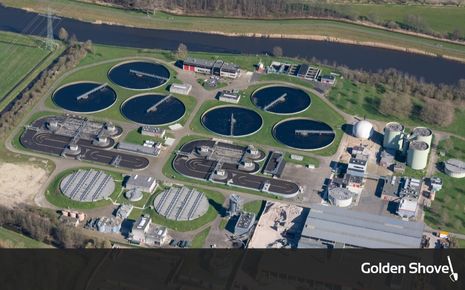Strengthen and Expand Infrastructure Through Federal Infrastructure Grants

6 Mar 2023
News, Grants
Any local community’s ability to work toward positive economic development hinges upon the presence of a fully functioning infrastructure to facilitate its basic necessities. This includes hard infrastructure like sufficient roads and highways, in addition to a strong electrical grid, sufficient water, and, more recently, broadband coverage for all. Economic developers in communities with an aging or insufficient infrastructure should consider applying for federal grant opportunities as quickly as possible.
Once these essential components are satisfied, long-term economic development can begin to take place, transforming once-struggling rural communities into thriving hubs that developers will want to invest in.
Infrastructure Grants
Community Facilities Direct Loan & Grant Program
This initiative aims to provide funding to help create essential facilities in rural communities of less than 20,000 residents. These funds are allocated for constructing, improving, or paying operating expenses to run:
- Healthcare facilities
- Public facilities
- Community support facilities
- Public safety services
- Educational services
- Utility services
- Local food systems
Rural Energy For America Program Energy Audit & Renewable Energy Development Assistance Grants
The USDA’s purpose for this program is to create grants for energy audits and renewable energy development assistance to benefit agricultural producers and small businesses in rural areas.
By improving the efficiency of already existing renewable power sources and increasing the domestic energy supply, Americans will achieve energy independence leading to lower energy costs.
Rural Energy For America Program Renewable Energy Systems & Energy Efficiency Improvement Guaranteed Loans & Grants
These loans and grants aim to enable agricultural producers in rural areas (areas with a population of less than 50,000) to obtain funding for new renewable energy systems and improvements to existing systems.
Various supported renewable energy sources include wind, hydroelectric, geothermal, ethanol, and biodiesel. Upgrades to existing systems include high-efficiency HVAC, lighting, insulation, doors & windows, or replacement of any energy-inefficient equipment.
Grants for upgrades to existing systems can be as large as $500,000, and installing new systems is worth up to one million dollars.
Telecommunications Infrastructure Loans & Loan Guarantees
The USDA’s Rural Development department is offering to help pay for the costs associated with telecommunications infrastructure.
These grants help finance construction, maintenance, telephone, and internet infrastructure improvements in rural areas with less than 5,000 residents by providing low-interest rate loans.
Areas with inadequate telecommunications facilities or those without telecommunication infrastructure stand to benefit the most from these loans.
Emergency Community Water Assistance Grants
These grants focus on small communities' ability to provide clean drinking water after a disaster. Awardees can apply for the grant following a disaster or in preparation for potential drought, flood, earthquake, tornado, hurricane, disease, or toxic spill scenarios.
Local governments and nonprofit organizations can use the funds to make extensions and repairs to existing water lines ($150,000) or build entirely new water sources and treatment facilities ($1,000,000) in areas with fewer than 10,000 residents.
Individual Water & Wastewater Grants
Homeowners of Arizona, California, New Mexico, and Texas that live in communities with less than 10,000 people can receive up to $5,000 to fix issues relating to lack of potable water, sewage systems, roads, or drainage. In some instances, it makes sense for economic developers to augment community-wide infrastructure projects with programs aimed at empowering individual homeowners to also make upgrades.
Improvements to potentially eligible properties include:
- Extending water lines to a residence.
- Paying for plumbing fixtures.
- Constructing a bathroom.
- Making any improvements to the home’s water and waste disposal systems.
To be eligible for this grant, recipients must own their homes, and there cannot be any outstanding delinquent debt or liens on the property.
Rural Economic Development Loan & Grant Program
This program provides grants and interest-free loans for utility services. Local businesses will create and maintain employment opportunities within the surrounding community as they continue to save money from these interest-free loans.
Three hundred thousand dollars in grants and two million dollars in loans are available through this program. The USDA has designated the funds for business incubators, developing nonprofits, job training facilities, medical facilities, and start-up businesses.
Higher Learning Infrastructure And Capacity Building Challenge Grants
The National Endowment For The Humanities is attempting to reinforce the number of humanities programs nationwide via a multifaceted approach backed up by funding
Up to one million dollars is awarded to numerous organizations that support humanities. These funds are used to buy anything related to building and maintaining the infrastructure surrounding a collection, including digital infrastructure.
The 2022 deadline for this program has passed, but it will be available again in early 2023.
Applying For Infrastructure Grants
A solid infrastructure is the foundation of any community’s ability to function independently, which is why these grants are especially important to rural communities that lack these basic necessities.
Want to learn more? Download the Economic Developers Guide to Grants That Can Fund Key Initiatives whitepaper today!
For more information and assistance in applying for grants, contact Golden Shovel or visit our website to learn more about how these initiatives can help you.
More Topics





